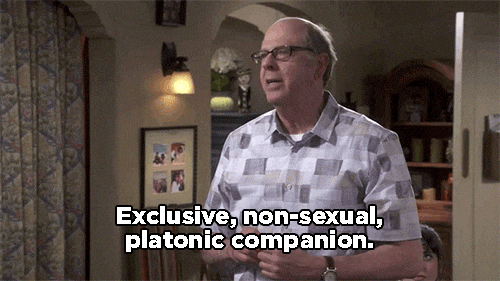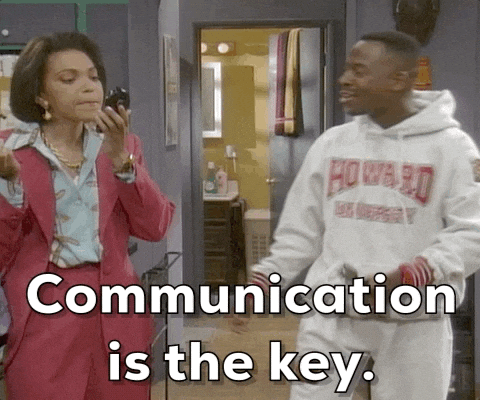Managing Sexuality with Autism Spectrum Disorder (ASD) | Sex

Autism spectrum disorder (ASD) is a neurodevelopmental disorder commonly classified as neurodivergentand it can cause a range of developmental disorders, including social, cognitive, communication and behavioural difficulties. People with autism experience their daily functioning being affected in different ways and to varying degrees. This range of impacts is known as “spectrum”If you have been diagnosed with autism, you may be able to live a normal life with relatively few setbacks. On the other hand, some autistic people are significantly affected by cognitive or language barriers. In the latter case, the diagnosis may be made Asperger Syndromea common diagnosis included within the broader framework of ASD.
Although symptoms vary widely, common symptoms of autism include: avoiding eye contact; hyperfocus on a particular interest; difficulty understanding others’ thoughts or emotions; being highly cognitively gifted, social anxiety, inability to register sarcasm, fear of deviating from patterns or routines; lack of ability to stay engaged in conversation; inability to communicate through tone of voice, difficulty following social rules, repetitive behaviors, and specific needs for personal space.
While autism doesn’t directly affect sexual development, it can certainly influence your sexual relationships because of its overall effect on your ability to communicate with others, among other factors.
How Autism Can Affect Sexual Experience
If you have autism, you may have experienced the following sexual problems at one time or another:
Being labeled as non-sexual
If you regularly experience communication and social difficulties due to your autism, you may have already been pigeonholed (by the neurotypical among us) as having no sexual thoughts or desires. And yet studies show that people with ASD develop and maintain the same level of sexual interest as others.

High sensory sensitivity
Sex can be truly overwhelming. Sensory sensitivity to the sounds, sights, tastes, smells, and sensations of sex can make you uncomfortable or prevent you from engaging in a particular act, which, of course, should always be communicated. It could be a certain texture, tone, or smell that you find overly stimulating. For some, it’s simple eye contact. In the bedroom, hypersensitivity can make you highly sensitive to things that turn you on as well as things that turn you on.
Hypersexuality
In some autistic people, difficult social situations combined with a tendency toward physical hypersensitivity can cause hypersexuality. If this is the case for you, in an effort to satisfy your needs, you may end up expressing your sexual feelings in ways that are deemed socially inappropriate, abnormal, or sometimes even harmful to others. a partner has higher libidoThis can cause conflict in a relationship, especially if the hypersexual person prefers to seek relief from sources other than their partner, such as pornography or having an affair.
Communication is not always easy
One partner may not realize that the other is feeling dissatisfied, uncomfortable, or anxious, especially if communication is poor. You will likely benefit from discussing your needs and boundaries with your partner. Before have sex. If you don’t establish a strong relationship of mutual understanding (easier said than done), they may think you don’t have the best intentions for them or the relationship. If you have trouble communicating when you’re overwhelmed (such as during sex), anxiety will naturally result.
Obstacles to education
A Study 2021 found that autism can pose challenges to a person’s understanding standard sex education Sex education requires focusing on topics that may be uncomfortable, with a focus on social behaviors and scenarios involving intimacy, which could be an anxiety trigger for you. Many classrooms don’t accommodate diverse learning styles, making the barriers to understanding sex education quite palpable for those with ASD.
Sexual abuse
A recent study found that although 30% of women in the general population have experienced sexual violence, 90% of autistic women People with ASD are survivors of sexual abuse. Partly because of their difficulty understanding social cues, people with ASD may be more likely to be coerced or tricked into having sex with someone they know or someone who cares about them. Autism doesn’t make people naive; it’s just that they tend to take things literally. As a result, you may not initially suspect that someone who “likes” you doesn’t necessarily mean what they say.
How to Live an Optimal Sex Life with Autism
Understanding Consent
Fact: Not everyone communicates the same way, and your social cues may be different from your partner’s. Understanding Your Partner’s Behaviors consent Signals are essential to maintaining trust and intimacy. The best way to reduce miscommunication in all its forms is to communicate explicitly with your partner about your needs, desires, boundaries, etc. This is much easier to do when you are not in the heat of the moment. Together, you can establish ground rules for sexual activity as well as a better understanding of each other.
Learn creative communication
Whether you want to tell your partner about your autism is up to you, but it can create a much stronger foundation for informed communication. If you don’t feel able to reveal it, that’s normal: Many people with ASD learn to do what it takes to fit in, which is maskingRegardless of what level of disclosure you choose, it may be helpful to decide on a safe worda gesture or sound that indicates “stop” before making physical contact with your partner. This can go a long way in making you feel safe and comfortable. You can even go further and choose additional safe words/gestures to mean “yes,” “no,” or “maybe.”
Work with your sensitivities
If you need to avoid certain sensory stimuli, do so. For example, tie your hair back if tickling bothers you, or wear light clothing if skin-to-skin contact is uncomfortable. To avoid overstimulation, it can sometimes be helpful to use a blindfold or try positions with your back to your partner. Similarly, if there are sensations or textures that you find comforting (or arousing)—i.e., the feeling of rope, leatheror ice cream, embrace that. “There are times when I can feel my emotions with every cell in my body, so if it’s a positive or euphoric emotion, it can be an amazing thing,” says Lauren Megrewautistic psychologist and psychotherapist. Whatever your needs, be sure to share them with your partner and ensure mutual consent.
If your partnerr is autistic
Learn more about TSA
Your partner probably has executive function deficits like planning, organizing, prioritizing, time management, emotional regulation, and impulse control. You can be counted on to perform these tasks, which can be taxing at the best of times. Try not to assume a lack of motivation or behavioral issues, though; your partner is simply wired differently. Knowledge is power, and understanding them better is the first step toward a stronger bond.
Seek therapy
You and/or your partner may benefit from therapy. It may be helpful to seek out an individual therapist, a specialized couples therapist, and/or join a support group for people whose partner is autistic. You can find counselors with experience in autism on the websiteAutism Services Directory.
Learn communication strategies that work…for both of you
To begin, sit side by side Conversations are more effective because people with ASD often have difficulty processing verbal information while maintaining eye contact. Just as your partner needs to learn to communicate clearly, your communication should also be calm and direct. Together, you can discuss expectations for behavior. Be aware that you may need to provide very explicit instructions, even for actions like hugging. It is essential to clearly define your social, emotional, mental, physical, and sexual needs. Your partner will most likely want to meet these needs once they understand how to do so.


 Anal Beads
Anal Beads Anal Vibrators
Anal Vibrators Butt Plugs
Butt Plugs Prostate Massagers
Prostate Massagers
 Alien Dildos
Alien Dildos Realistic Dildos
Realistic Dildos
 Kegel Exercisers & Balls
Kegel Exercisers & Balls Classic Vibrating Eggs
Classic Vibrating Eggs Remote Vibrating Eggs
Remote Vibrating Eggs Vibrating Bullets
Vibrating Bullets
 Bullet Vibrators
Bullet Vibrators Classic Vibrators
Classic Vibrators Clitoral Vibrators
Clitoral Vibrators G-Spot Vibrators
G-Spot Vibrators Massage Wand Vibrators
Massage Wand Vibrators Rabbit Vibrators
Rabbit Vibrators Remote Vibrators
Remote Vibrators
 Pocket Stroker & Pussy Masturbators
Pocket Stroker & Pussy Masturbators Vibrating Masturbators
Vibrating Masturbators
 Cock Rings
Cock Rings Penis Pumps
Penis Pumps
 Wearable Vibrators
Wearable Vibrators Blindfolds, Masks & Gags
Blindfolds, Masks & Gags Bondage Kits
Bondage Kits Bondage Wear & Fetish Clothing
Bondage Wear & Fetish Clothing Restraints & Handcuffs
Restraints & Handcuffs Sex Swings
Sex Swings Ticklers, Paddles & Whips
Ticklers, Paddles & Whips



















